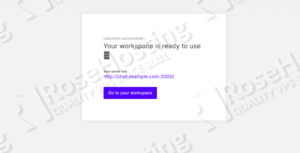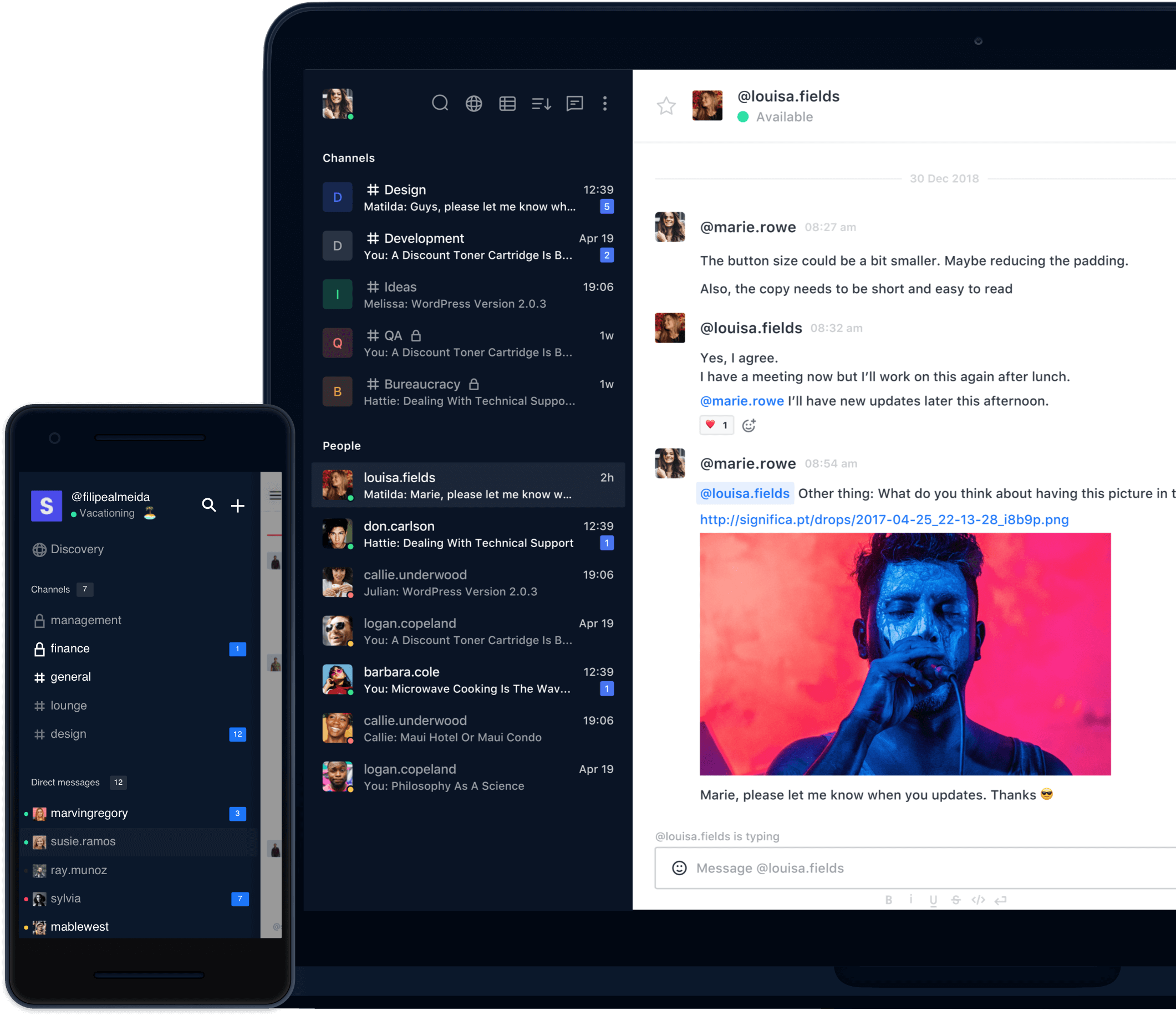

- Install rocketchat how to#
- Install rocketchat install#
- Install rocketchat update#
- Install rocketchat full#
- Install rocketchat code#
The next crucial step is to add the security and privacy benefits of an HTTPS certificate to your chat service. The Rocket.Chat application should be accessible using your domain configured in the proxy server. Now everything is configured correctly, open your broswer and type the folloiwng address. On CentOS/RHEL and Fedora, simply restart the apache service. On Ubuntu and Debian enable the required apache2 modules and restart the service to apply the recent changes. Then copy and paste the following configuration in the file (replace with your valid subdomain or domain). Next, create a virtual server block file for the Rocket.Chat application under the /etc/nginx/conf.d/ directory, for example. Once the package installation is complete, start the Nginx service, for now, enable it to automatically start at system boot and check its status to ensure that it is running.
Install rocketchat install#
$ sudo dnf install nginx #Fedora 22+/CentOS/RHEL 8ġ1. $ sudo apt apt install nginx #Ubuntu/Debian First, install the NGINX package if it is not installed yet on your system. Enable Nginx Reverse Proxy for Rocket.Chatġ0. A reverse proxy also allows you to configure SSL/TLS certificates to enable HTTPS.

A reverse proxy such as NGINX or Apache allows you to configure the Rocket.Chat application to be accessible via a domain or subdomain (e.g ) instead of typing the server’s address and application port (e.g ).Īdditionally, Rocket.Chat is a middle-tier application server that does not handle SSL/TLS. Use Work Space Rocket.Chat Home Workspace Step 3: Configuring Reverse Proxy for Rocket.Chatĩ. The setup is complete and your workspace is ready.

Install rocketchat update#
There are two options here, the default is to use the preconfigured gateways and proxies provided by Rocket.Chat (this is the recommended option).Īlternatively, you can choose to keep standalone and create accounts with service providers, update preconfigured settings, and also recompile the mobile apps with your private certificates. Next, provide the server information (site name, default, server type, and also enable 2FA or not). Next, provide the organizational information (organization type, name, industry, size, country, and website), then click Continue.
Install rocketchat full#
After the setup wizard loads, provide the administrative user’s full name, username, organizational email, and password. Open a web browser and enter the following address to set up rocket.chat on the system. When the snap installation is complete, your rocket.chat server will start running and listening on port 3000 by default. Now that you have Snapd installed, run the following command to install the rocketchat-server.Ĥ. $ sudo systemctl enable -now snapd.socketĪdditionally, you can enable classic snap support by creating a symbolic link between /var/lib/snapd/snap and /snap.ģ. On Ubuntu, this should be done automatically after the package installation is complete. Note that this command will start the socket and enable it to start at system boot. When the installation is complete, you need to enable the systemd unit that manages the main snap communication socket as follows. $ sudo dnf install snapd #Fedora 22+/CentOS/RHEL 8Ģ. $ sudo apt install snapd #Ubuntu and Debian Additionally, with snaps, you can also auto-update when a new version of a package is available.įirst, ensure that you have the snapd package installed on your system, otherwise install it using your default package manager as shown. The easiest way to install Rocket.Chat is by using Snaps – are supported by most if not all modern Linux distributions and they are secure because they run confined under a restrictive security sandbox.
Install rocketchat how to#
In this article, you will learn how to install and configure Rocket.Chat server and client on a Linux system.
Install rocketchat code#
Importantly, being fully open-source, you can access its source code to fully customize, extend, or add new functionality to meet your team’s or business requirements. To ensure secure communication, it supports LDAP group synchronization, two-factor authentication (2FA), End-to-End encryption, Single Sign-On, and several Oauth providers. It is similar to Slack and features live chat, free audio and video conferencing, channels, guest access, screen sharing, and file sharing. It is cross-platform and it runs on Linux, Windows, macOS, Android, and iOS mobile operating systems. Rocket.Chat is a free, open-source, scalable, highly customizable, and secure platform that allows you to communicate and collaborate with your team, share files, and chat in real-time.


 0 kommentar(er)
0 kommentar(er)
